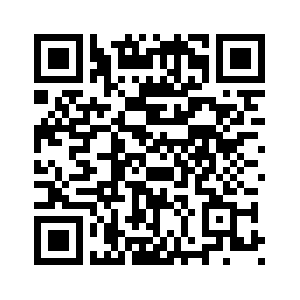MOSCOW/KIEV, Feb. 24 (Xinhua) -- Russian President Vladimir Putin on Thursday authorized "a special military operation" in the Donbass region, and Ukraine confirmed that military targets across the country were under attack.
"Our plans do not include the occupation of Ukrainian territories. We are not going to impose anything on anyone by force," Putin said in a televised speech to the nation, noting that Russia's move is in response to "fundamental threats" of the North Atlantic Treaty Organization (NATO) which has expanded to eastern Europe and brought its military infrastructure closer to Russian borders.
Putin called on all people living on the territory of Ukraine to "independently determine the future of their own and children."
In the Ukrainian capital of Kiev, explosions were heard at Boryspil International Airport and other places across the city, according to local media reports. The country's airspace was closed for civilian aircraft, and local authorities were evacuating passengers and staff from the airport.
Ukrainian President Volodymyr Zelensky on Thursday declared martial law in the country following Russia's military operation.
In a video address, Zelensky said his country is under attack. According to the Interior Ministry, military depots and airfields in the capital were hit by missiles.
Putin on Monday signed two decrees recognizing "the Lugansk People's Republic" and "the Donetsk People's Republic" as independent and sovereign states and deployed "peacekeeping" forces in the two regions.
Seeing it as "a matter of time" for NATO to expand eastward, Putin took military actions against Ukraine after his recent negotiations with the United States and NATO failed.
Russia will not allow Ukraine to have nuclear weapons, he said Thursday, adding that Russia took action to protect itself from "those who take Ukraine hostage."
In case of external interference in the situation in Ukraine, Russia will respond immediately, Putin said.
In a late-night address Wednesday, Zelensky said he had unsuccessfully sought talks with Putin. "I initiated a telephone call with the president of the Russian Federation. Result: silence."
While mobilizing troops, Russia closed its airspace to civilian aircraft on its western borders with Ukraine and Belarus, the aviation authorities said Thursday.
According to the Russian Defense Ministry, the Russian Armed Forces are destroying "military infrastructure, air defense facilities, military airfields, aviation of the Ukrainian Armed Forces" with high-precision weapons, not targeting Ukrainian cities.
Besides Kiev, several military targets in eastern and southern Ukraine were under attack early Thursday, according to the Interfax-Ukraine news agency.
Shortly after Putin announced the military operation in Ukraine, United Nations Secretary-General Antonio Guterres on Wednesday night called on Russia to withdraw its troops.
If the military action would lead to a generalized war, "it is difficult to forecast how dramatic it will be in the number of people who will die, in the number of people who will be displaced, in the number of people who will lose hope in relation to the future," Guterres told reporters following a Security Council emergency meeting on Ukraine.
To rally support of the West, Zelensky has reached out to U.S. President Joe Biden and French President Emmanuel Macron over phone.
During the call, Biden briefed his Ukrainian counterpart on the steps Washington is taking "to rally international condemnation," adding that the United States "will continue to provide support and assistance to Ukraine and the Ukrainian people," according to a White House statement.
Biden also said he will meet with other leaders of the Group of Seven countries on Thursday.
The United States has announced what it called "the first tranche" of punitive measures on Russia -- sanctions on two major Russian banks and on the country's sovereign debt, preventing Moscow from raising money from the West and trading new debt in U.S. or European markets. It also sanctioned Russian elites and their family members. ■



